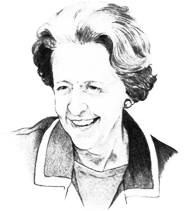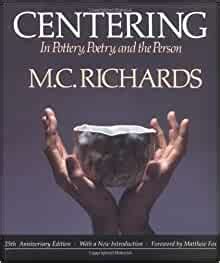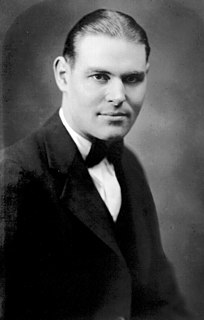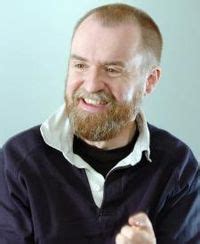A Quote by Barbara Ward, Baroness Jackson of Lodsworth
Casually, unconsciously, but with deadly effectiveness, western man all round the globe destroyed the traditional gods and the ancient societies with his commerce and his science. ... Does it mean nothing to him if great areas of the world, where western influence has been predominant, emerge from this tutelage unable to return to the old life, yet unfitted for the new? It is hard to believe that the future could ever belong to men demonstrating irresponsibility on so vast a scale.
Quote Topics
Ancient
Areas
Been
Believe
Belong
Casually
Commerce
Could
Deadly
Demonstrating
Destroyed
Does
Effectiveness
Emerge
Ever
Future
Globe
Gods
Great
Hard
Hard To Believe
Him
His
Influence
Irresponsibility
Life
Man
Mean
Men
New
Nothing
Old
Old Life
Predominant
Return
Round
Scale
Science
Societies
Traditional
Tutelage
Unable
Vast
Western
World
Related Quotes
No civilisation, not even that of ancient Greece, has ever undergone such a continuous and profound process of change as Western Europe has done during the last 900 years. It is impossible to explain this fact in purely economic terms by a materialistic interpretation of history. The principle of change has been a spiritual one and the progress of Western civilisation is intimately related to the dynamic ethos of Western Christianity, which has gradually made Western man conscious of his moral responsibility and his duty to change the world.
Nothing feebler than a man does the earth raise up, of all the things which breathe and move on the earth, for he believes that he will never suffer evil in the future, as long as the gods give him success and he flourishes in his strength; but when the blessed gods bring sorrows too to pass, even these he bears, against his will, with steadfast spirit, for the thoughts of earthly men are like the day which the father of gods and men brings upon them.
On the future of the U.S., or of Western civilization in general, I tend to be quite pessimistic. I would say that today I see most of the symptoms of societies on the brink of collapse, not just in the U.S., but in the tightly interconnected societies of Western civilization - now essentially world civilization.
The philosophy of Atheism has its root in the earth, in this life; its aim is the emancipation of the human race from all God-heads, be they Judaic, Christian, Mohammedan, Buddhistic, Brahmanistic, or what not. Mankind has been punished long and heavily for having created its gods, nothing but pain and persecution, have been man's lot since gods began. There is but one way out of this blunder. Man must break his fetters which have chained him to the gates of heaven and hell, so that he can begin to fashion out of his reawakened and illumined consciousness a new world upon the earth.
In my Pantheon, Pan still reigns in his pristine glory, with his ruddy face, his flowing beard, and his shaggy body, his pipe and his crook, his nymph Echo, and his chosen daughter Iambe; for the great god Pan is not dead, as was rumored. No god ever dies. Perhaps of all the gods of New England and of ancient Greece, I am most constant at his shrine.
He did not know that the new life would not be given him for nothing, that he would have to pay dearly for it, that it would cost him great striving, great suffering. But that is the beginning of a new story -- the story of the gradual renewal of a man, the story of his gradual regeneration, of his passing from one world into another, of his initiation into a new unknown life. That might be the subject of a new story, but our present story is ended.
This is a man with an old face, always old... There was pathos, in his face, and in his eyes. The early weariness; and sometimes tears in his eyes, Which he let slip unconsciously on his cheek, Or brushed away with an unconcerned hand. There were tears for human suffering, or for a glance Into the vast futility of life, Which he had seen from the first, being old When he was born.
The child takes in his world as if it were food. And his world nourishes or starves him. Nothing escapes his thirst. Secrets are impossible. He identifies with his surroundings and they live within him unconsciously; it is perhaps for this reason that the small child has been characterized as naturally religious.
William Wilberforce...w as a great man who impacted the Western world as few others have done. Blessed with brains, charm, influence and initiative, much wealth ... he put evangelism on Britain's map as a power for social change, first by overthrowing the slave trade almost single-handed and then by generating a stream of societies for doing good and reducing evil in public life... To forget such men is foolish.
We who have lived before railways were made belong to another world. It was only yesterday, but what a gulf between now and then! Then was the old world. Stage-coaches, more or less swift, riding-horses, pack-horses, highwaymen, knights in armor, Norman invaders, Roman legions, Druids, Ancient Britons painted blue, and so forth -- all these belong to the old period. But your railroad starts the new era, and we of a certain age belong to the new time and the old one. We who lived before railways, and survive out of the ancient world, are like Father Noah and his family out of the Ark.
The functions of the president are prescribed by the Constitution, but his real achievements are not set by the letter of the law. They are determined rather by his personality, the weight of his influence, his capacity for managing men, and the strength and effectiveness of the party forces behind him.
Most of the world's great souls have been lonely. Loneliness seems to be one price the saint must pay for his saintliness... Always remember: you cannot carry a cross in company. Though a man were surrounded by a vast crowd, his cross is his alone and his carrying of it marks him as a man apart. Society has turned against him; otherwise he would have no cross. No one is a friend to the man with a cross.
Srinivasa Ramanujan was the strangest man in all of mathematics, probably in the entire history of science. He has been compared to a bursting supernova, illuminating the darkest, most profound corners of mathematics, before being tragically struck down by tuberculosis at the age of 33, like Riemann before him. Working in total isolation from the main currents of his field, he was able to rederive 100 years' worth of Western mathematics on his own. The tragedy of his life is that much of his work was wasted rediscovering known mathematics.
Pain! Deep, tearing, throbbing, needle-sharp, hammer-blunt pain – ripping through his body and through his mind, twisting deep in his guts and slicing at his skin with razors and broken glass. Oskan wanted to scream, but his vocal cords had burned away. He was desperate for water and he could hear it dripping all around him, but his charred tongue found nothing in his mouth but blisters and scorched flesh. For hours he lay on the ropes of the low bed, unable to move, the pressure of the hemp on his destroyed skin sending new agonies deep into his body.





































